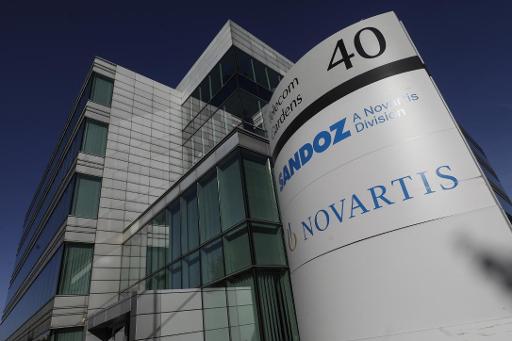A remarkable crowdfunding effort for a Belgian toddler suffering from a life-threatening genetic disease has seen one of the world's largest pharmaceutical firms shut down government appeals to their "humanity."
Pharmaceutical giant Novartis denied a request from the federal government to make the most expensive medicine in the world available for free to Pia, a Belgian toddler who suffers from spinal muscular atrophy and has made the headlines in recent days following a notable crowdfunding success by her parents.
By launching a nation-wide SMS campaign, the toddler's family managed to pool together the €1.9 million needed to afford the gene therapy Zolgensma, a drug which has yet to receive approval for the European market.
On Thursday, Federal Health Minister Maggie De Block urged the company to "remain human" and give the medicine to 9-month-old Pia, but the minister's cabinet said the company had refused their request, a refusal which they see as unjustified.
Zolgensma is the most expensive drug in the world and was hailed as a breakthrough in the treatment of the aggressive disease which progressively leads to muscular failure and sees most children diagnosed with it die in early infancy.
Company must 'remain human'
With the therapy yet to receive approval to enter the European market, De Block on Thursday said the "largely public-funded" company should make it available under a program known as compassionate use (CUP).
"A company that markets a drug whose development is largely funded by public money and by patient organisations has a social responsibility and must remain human," De Block said in an address to parliament, according to Het Nieuwsblad.
CUP allows national governments to request pharmaceutical firms to provide drugs to a patient for free pending their market approval.
A spokesperson for De Block said that, despite the fact that they considered the conditions for CUP were met in the case of Pia, their request to Novartis had been rejected.
"We addressed a CUP request to the firm, but they refused," Audrey Dorigo, a spokesperson for De Block, told The Brussels Times.
No compassionate use
"We find that their refusal is not justified," Dorigo added, citing cases where other pharmaceutical firms had agreed to provide a non-approved drug under the CUP.
A media relations officer for Novartis did not reply to multiple requests for comment but provided a statement released ahead of De Blocks' statements on Thursday.
"We are in constant dialogue (...) with government bodies to find solutions for early access for all our innovative treatments for patients who can benefit from them," the statement read, adding that the company could not comment on individual patient cases like Pia's.
"We considered it the duty of the firm to make the medicine available," Dorigo said, adding that a long-term solution needed to be found for patients in cases similar to Pia's.
The toddler's family told Het Nieuwsblad that the firm's refusal to a request they had made several times was "not news" to them.
"What is news is the public pressure," they said, adding that they would be looking to speak with Novartis "as soon as possible."
Gabriela Galindo
The Brussels Times

